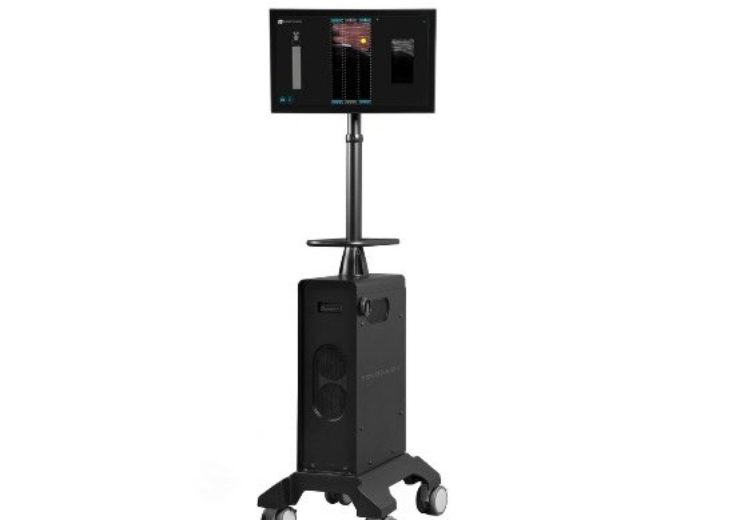SonoVision is claimed to be the first machine-learning enabled ultrasound product for intraoperative access to the spine

The SonoVision electronics platform displays an axial psoas muscle image with intuitive color differentiation of nerve, muscle and bone. (Credit: Tissue Differentiation Intelligence )
Tissue Differentiation Intelligence (TDi) has secured 510(k) clearance from the US Food and Drug Administration (FDA) for its SonoVision ultrasound platform.
SonoVision is claimed to be the first machine-learning enabled ultrasound product for intraoperative access to the spine.
SonoVision helps to visually differentiate nerve, muscle, bone and vessels in real-time
SonoVision visually differentiates nerve, muscle, bone and vessels in real-time by applying layers of image-processing algorithms to ultrasound images collected intraoperatively.
TDi said that it has currently deployed multiple systems for clinical study data collection under IRB and for Alpha assessments, which are focused primarily on the clinical refinement of the lateral surgery access product.
Expanded procedural applications, including posterior access to the spine, 3D imaging, and image-guided navigation integration are also in preliminary stages of procedural development, said the company.
TDi is also having intellectual property around the algorithm and procedural applications, as well as completed a porcine validation study.
The issued intellectual property is said to protect ultrasonically scanning tissue and interpret images via signal and image processing, as well as algorithms used while differentiating tissue based on image characteristics and spectral signatures.
TDi chairman and CEO Alex Lukianov said: “This is a monumental achievement for TDi which validates the rigor of the research and development process that has occurred over the past 7 years to make this technology possible.
“With this clearance, TDi ushers in a new era of innovations related to soft tissue imaging in spine surgery, and really, the beginning of a much broader trend of artificial intelligence and machine learning being applied to satisfy challenging clinical requirements in spine surgery.”
In February, Canon Medical Systems USA secured 510(k) from FDA for its Aquilion ONE / PRISM Edition, which helps advance deep learning spectral capabilities for routine spectral imaging.
